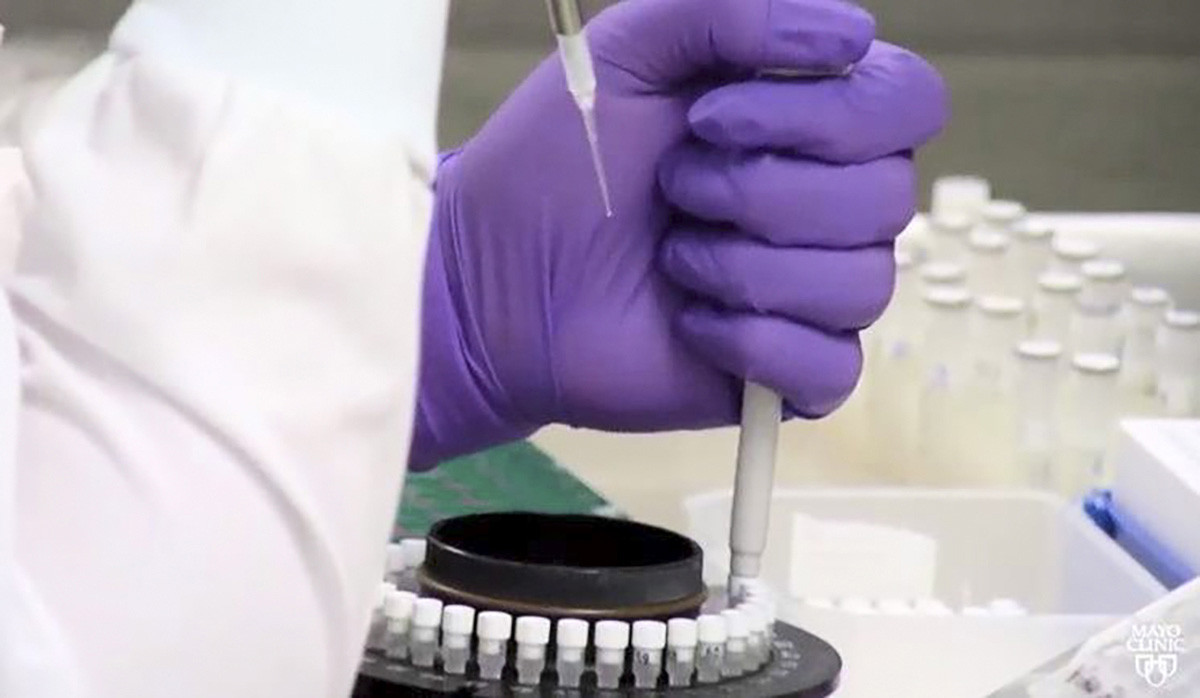Popular Reads
Top Results
Can't find what you're looking for?
View all search resultsPopular Reads
Top Results
Can't find what you're looking for?
View all search resultsIndonesia interested in joining WHO’s multinational trial for COVID-19 treatments
Indonesia has expressed interest in participating in a World Health Organization-led clinical trial to study potential COVID-19 treatments.
Change text size
Gift Premium Articles
to Anyone
As the world races to find a vaccine for the coronavirus, Indonesia has expressed interest in participating in a World Health Organization-led clinical trial to study potential COVID-19 treatments.
WHO Director General Tedros Adhanom Ghebreyesus announced on Wednesday what he called a solidarity trial, a multi-country study to analyze untested treatments to speed the search for potential therapies and drugs for the coronavirus. "This large international study is designed to generate the robust data we need to show which treatments are the most effective," he said.
As of Saturday, more than 275,000 people from 166 countries and regions had been infected, with more than 11,000 dead, according to data compiled by the Johns Hopkins University Center for Systems Science and Engineering.
Indonesia alone recorded 450 confirmed cases and 38 deaths by Saturday afternoon, according to the Health Ministry.
Acep Somantri, the ministry's international cooperation bureau head, said he had met with a WHO representative in Jakarta on Friday to discuss the details of the multi-country trial and how Indonesia could participate.
“We see this program to be very good for global health and one that will help accelerate clinical trials of several drugs and vaccines for COVID-19,” Acep told The Jakarta Post on Friday.
He said that, with the program, it would be possible for countries to share the best practices of other treatment programs they ran.
There are currently no vaccines or treatments approved for the disease, but researchers are studying existing treatments and working on experimental ones. At the moment, most patients can only receive supportive care.
Argentina, Bahrain, Canada, France, Iran, Norway, South Africa, Spain, Switzerland and Thailand have confirmed their participation in the WHO trial.
The study aims to provide reliable estimates on the effects of antiviral treatments. It will also assess the effects of such antivirals on duration of hospital stay and intensive care.
The study will be conducted simultaneously in each participating country and will randomly test five treatments, namely the usual standard care, the remdesivir, the lopinavir/ritonavir, the lopinavir/ritonavir plus interferon, and the chloroquine, measuring their effectiveness. It will be monitored by an independent global data and safety monitoring committee and would be administered randomly to patients.
The program does not set out any specific sample size, emphasizing that the greater the enrollment, the more accurate the results will be. “But the numbers that can be entered will depend critically on how large the epidemic becomes,” according to the protocol of the solidarity trial.
“We see that it is important for us to support and participate in this program. We are going to join the program through WHO Indonesia, starting with remdesivir,” Acep said.
Remdesivir, an antiviral treatment made by United States-based Gilead Sciences, is in the final stages of clinical trials in Asia and doctors in China have reported it as effective in fighting the disease, according to AFP. Among numerous vaccines and treatments under development, remdesivir is the closest to market availability. It was originally developed for use against the Ebola virus. The drugmaker is expected to report early results of tests of the experimental medicine in April.
Acep said that the trial in Indonesia would be led by the Health Ministry's Health Research and Development Agency (Balitbangkes) and "of course will involve experts and hospitals".
"We are waiting for further guidance from WHO," he said.
Chairul Anwar Nidom, the chair of Airlangga University's Avian Influenza Research Center, warned that such trials should not ignore the safety of the patients.
“It is acceptable – not permissible – but acceptable [to start trialing new drugs] given the [serious] threat of the outbreak. But we cannot ignore the safety of patients who are trialed with the drugs. We don’t want this to have dual purposes – humanitarian and commercial interests,” he said.
Nafrialdi from the Clinical Research Support Unit at the University of Indonesia’s School of Medicine said if Indonesia participated in the WHO-led study, there would be various protocols that could be shortened, but it should not overlook the ethical aspects.
“The most important thing is informed consent from the patient, so they have to know what the goals are and what the possible side effects are. This is the standard, and most families would sign up for that,” he said.
Experts have also pointed out that even though the medicines had shown good results in other countries, the drugs might not work for the Indonesian people, who live in a tropical climate.
Such concern was raised last week when President Joko “Jokowi” Widodo said the government planned to import two kinds of medicines that were reportedly effective in fighting the disease, namely Avigan – commonly used to treat COVID-19 patients in Japan – and chloroquine.
Jokowi said the government had imported 5,000 packs of Avigan while ordering 2 million more. There were also 3 million packs of chloroquine available, which is believed to help fight COVID-19, even though an antivirus has yet to be discovered.
Both of the medicines have not been clinically proven to stop COVID-19, but medical personnel in several countries have been using Avigan and chloroquine to treat symptoms in patients.
Nidom said it would actually take two to three years of testing before a drug could be commercially marketed, and it would take much longer to find a vaccine, normally around seven years.










